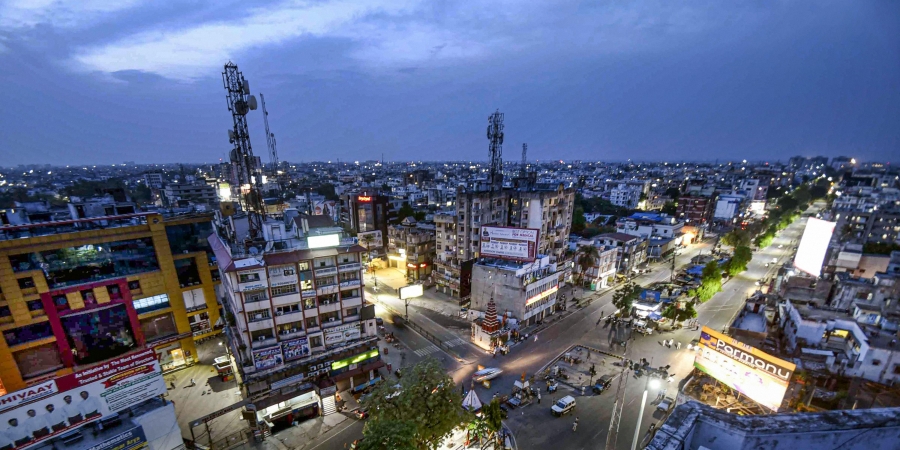
COVID lockdown says goodbye to big fat weddings, uncontrolled buyings

The nationwide lockdown due to the COVID-19 pandemic has locked crores of people in their homes, and left numerous jobless and depressed, battling for their survival. While many have been worrying about their kin stranded somewhere far, some could not even take part in the last rites of their near and dear ones.
But despite all the doom and gloom, there are a few silver linings to the COVID-19 crisis. Especially Bihar has seen at least five positive changes in the society and the mindsets of the people. The first and foremost of them is the reduction in Patna’s waste generation by more than 50 per cent.
Witnessing a clean capital, officials of the Patna Municipal Corporation (PMC) say the amount of garbage generated in the city had fallen by nearly 53 per cent last month. Prior to lockdown, they had been collecting around 1,300 metric tonnes of waste a day, but now it is only 600 metric tonnes, the officials say.
Related News: COVID-19: Facing problem of plenty, Telangana speed dials Bihar for help
“This is a pleasant surprise for all of us. We find the city wearing a clean look, although the sanitation workforce has gone down by 20 to 30 per cent due to the lockdown,” says Patna Mayor Sita Sahu. The change has happened after all restaurants, hotels and roadside food stalls — the major source of garbage generation — had closed.
However, councillor and standing committee member Indradeep Chandravanshi blames that the floating population had been dirtying streets more than hoteliers. “Hoteliers have been dumping wastes only at certain places, but the floating population dirtied the entire city. This has been proved now,” says Indradeep.
The natives of Patna have remained indoors and are continuing to buying foodstuffs. They keep generating waste, yet the streets look clean now. This means they have not been throwing wastes on the streets, but handing it over to sanitation staff, says Indradeep.
The second positive change is the halt in big fat weddings. Like in other parts of the country, weddings in the state are linked to the socioeconomic status of a family. From expensive venues and extensive menus to inviting upper echelons of the society, people never fail to demonstrate their financial capability.
Related News: Bihar keeps COVID-19 patients in good humour, achieves 48.8% recovery rate
But in one stroke, these have become a thing of the past. Currently, the groom somehow reach the bride’s house and the wedding gets over just a few hours without any hype and hoopla. Interestingly, families have not even been inviting their relatives, leave aside inviting the neighbours and throwing a grand feast.
The state has witnessed 30 such weddings since April 14, when the auspicious season for marriages began. In most cases, the groom himself was seen driving the bike to the bride’s house, instead of tastefully-decorated cars. “Though the situation prevented me from inviting all our guests and friends, I welcome the change. It has stopped the unnecessary display of wealth,” says Rahul Kumar, a groom.
The third change is the lesson people have been learning to live with bare-minimum requirements and save foodstuffs. Many residents say even essentials like vegetables are not easily available, particularly in the areas that come under ‘Red Zone’. “We ensure that foodstuffs don’t go to waste as many families have run out of groceries,” says Rajana Singh, a homemaker from Patel Nagar.
Related News: Tejashwi, Prashant slam Nitish for not evacuating students from Kota
The fourth change is the consciousness of hygiene among the people. They have been maintaining a high level of hygiene as advised by the government and the health department to fight the disease. This has not only helped the people keep the virus at bay, but also led to a sharp decline in conditions like heat stroke, diarrhoea and food poisoning.
“These are very common in summer. But there have been no such complaints this time as people have been maintaining proper hygiene,” says Dr Pratyush Kumar, a physician at Patna Medical College and Hospital.
Last but not the least, the lockdown has given an opportunity to the people to spend time with their family members and renew their old contacts, which they had been ignoring due to work pressure. They have been making phone calls to their friends and relatives, bringing a warmth in their relations.
“Well, the virus has restricted our movements and brought hardships in our lives. But it has proven to be a blessing in disguise for us. Society learns a new lesson from every disaster and this too has taught us a great lesson. It is time we wake up from slumber,” says social scientist Prof Sachindra Narayan, a retired professor from Patna-based AN Sinha Institute of Social Studies.


